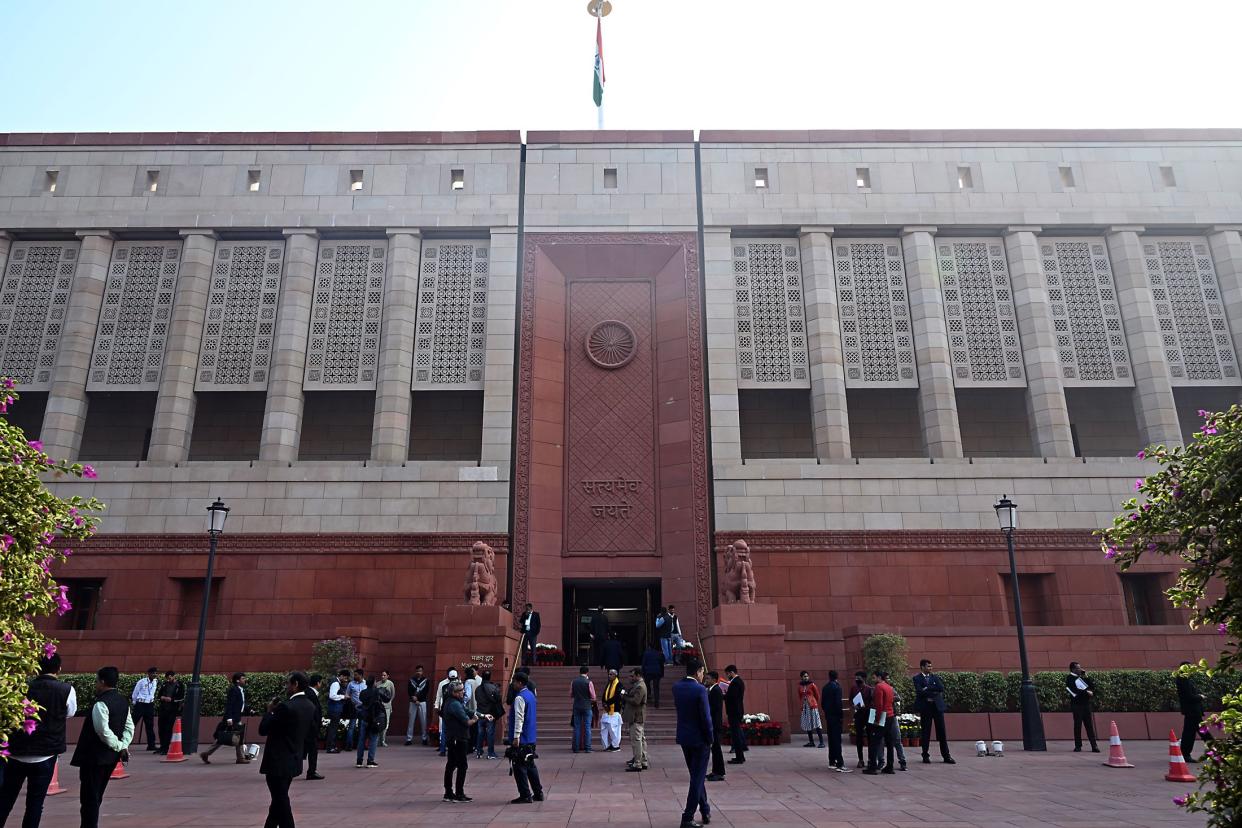India Parliament Pushes Key Bills After Opposition Suspended

(Bloomberg) -- Sign up for the India Edition newsletter by Menaka Doshi – an insider's guide to the emerging economic powerhouse, and the billionaires and businesses behind its rise, delivered weekly.
Most Read from Bloomberg
India’s parliament pushed through some crucial bills, including proposed changes to overhaul the criminal justice system, despite a record number of opposition members still suspended.
The lower house of parliament, or Lok Sabha, Wednesday approved by voice vote three bills seeking to overhaul the existing criminal justice system in the country. The government has tabled several other bills before the winter session ends this week.
Almost no opposition lawmakers were present after as many as 151 parliamentarians were suspended from both the upper and lower chambers in the past week.
The bills covering the criminal justice system will create a new version of the penal code and laws on procedures and evidence to replace colonial-era legislation.
“It’s time to put an end to colonial laws in India,” Home Minister Amit Shah said in parliament, adding the colonial-era laws were made as “a source of punishment for Indians” but the new laws will deliver “justice.”
New Criminal Laws Add to Unease of Doing Business: India Edition
The opposition lawmakers from 28 separate parties were suspended for disrupting parliamentary proceedings by waving placards and making loud protests for the government to address a recent security breach in the house.
The opposition groups, which have formed an alliance to fight Prime Minister Narendra Modi’s party in elections in coming months, said they will hold nationwide protests on Friday against the suspensions.
Jairam Ramesh, a lawmaker from the Congress party who was suspended this week, said there is a “complete purge” being carried out so that “draconian bills are passed without any meaningful debate.”
The new criminal law bills, which need to be approved by parliament’s upper house and the President of India to become law, revamp definitions of certain offenses while also making punishment more stringent for crimes such as terrorism, mob violence, crimes against the nation’s security and sovereignty, among others.
Two other bills are also on the agenda. The telecommunication bill seeks to create a comprehensive code to govern the sector, although critics say it may infringe on the privacy rights of citizens by giving the government power to intercept electronic communications.
The lower house is also likely to consider the bill for the appointment of election commissioners, which has already been cleared by the upper house.
(Updates with the passage of criminal bills)
Most Read from Bloomberg Businessweek
One Man’s Longevity Obsession Now Includes Fountain-of-Youth Injections
Michael J. Fox and Sergey Brin Take Their Push for a Parkinson’s Cure to the Next Level
We Are So Not Ready for a Society Where Living to 100 Is Common
©2023 Bloomberg L.P.


